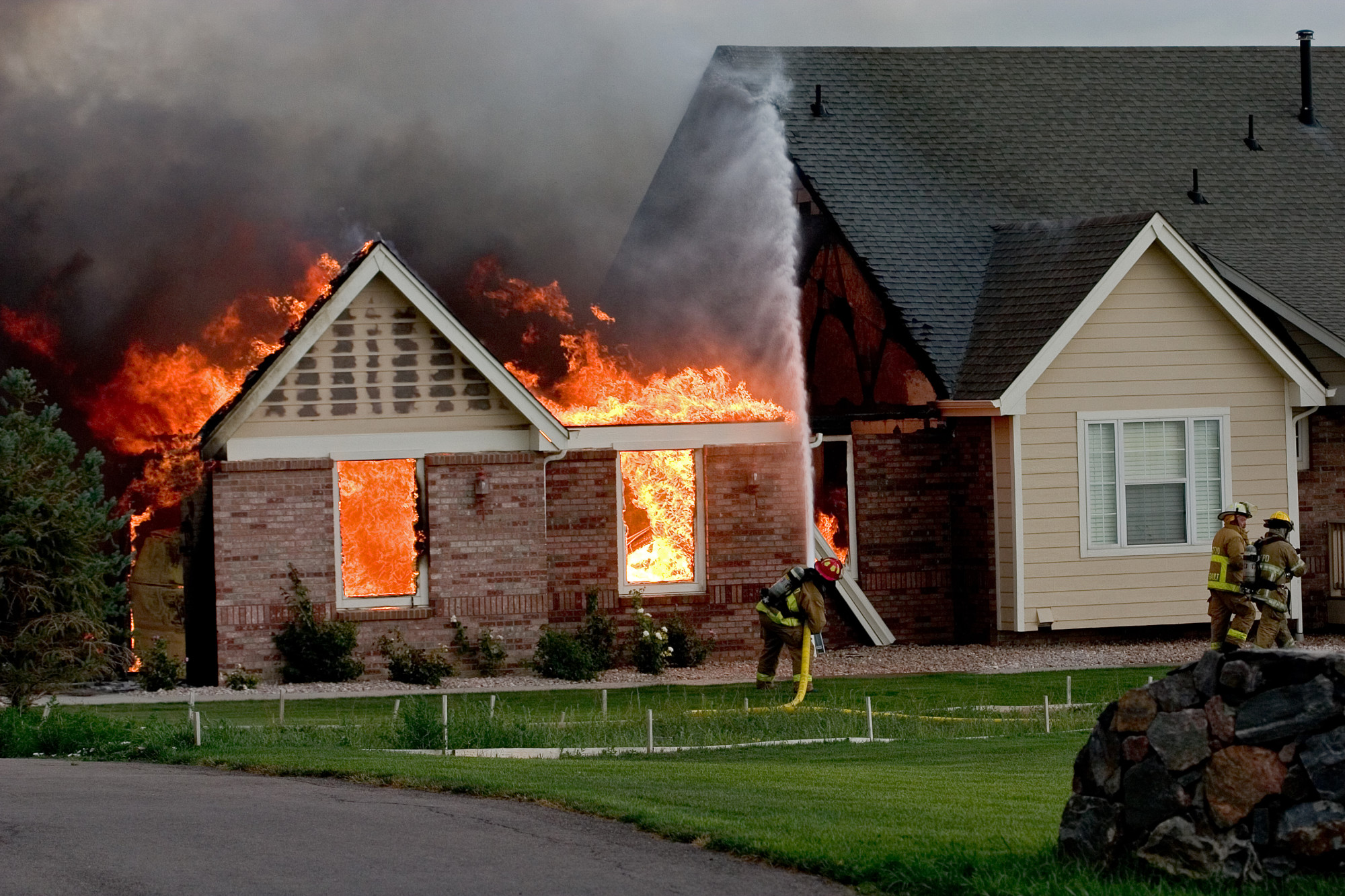
You don’t need to be reminded the amount of damage a fire can do to your home. Whether it’s for a small fire in the kitchen or an inferno consuming the entire house, you need to be protected. The damage as a result of home fire can be devastating. According to the National Fire Protection Association (NFPA), 2013 saw $7 billion in property fro residential fires alone. This is including dwellings, duplexes, manufactured homes (mobile homes), apartments, rowhouses, and townhouses and excluding properties such as hotels and motels, dormitories, barracks, rooming and boarding homes. Those stats are staggering.
What’s worse is finding out that you aren’t adequately covered for your losses. And the fires can be caused by just about anything- as long as it emits heat. It can be kitchen appliances being left on, a gas leak, or even a lightning strike. No one plans for these things to happen- they just do. All you can do is put all the measures in pace to prevent the fire accidents from happening, and ensuring that your home is covered in case they do.
Getting Insured Against Home Fires
In case you have property insurance, you may already be covered. But you need o be sure that the home fire insurance section of your home owners’ policy gives you adequate coverage. Coverage options vary from one provider to the next, so you may want to o through the specific details of your policy. The Insurance Information Institute estimates that the average fire claim exceeds $37,150.
You can insure your home through:
- Standard home insurance
Your standard home insurance should include fire coverage. It protects the structure of your home and everything inside it. It can go further to cover you in case your home becomes uninhabitable. It takes care of the expenses as your home gets repaired. This is inclusive of rented living space and paying extra for food. This coverage is usually 20% of the policy’s value–so for $300,000, that would come to $60,000. You can always pay extra to raise that. In case you’re a tenant, you landlord probably has the entire building already covered. Though it wouldn’t hurt to confirm. However, your belongings are your responsibility. Securing coverage for your personal items is left up to you in such a case.
- Dwelling fire coverage
It’s just like the standard or renters insurance policy, but it doesn’t cover your belongings. It only covers the building and structures on the property. Of course, this is not the wise option if you’re living in the house. But if it’s a vacation or vacant home, it’s more economically sensible. Depending on the premium level you choose, when a fire accident occurs you’ll have to pay more or less out of your own pocket. In case you have a larger financial cushion, you can choose a lower premium that offers less financial help or carries a larger deductible.
In a nutshell, you need enough insurance to cover:
- The structure of your home. Your real estate agent can help you assess the value of your property.
- Personal possessions.
- Costs of any additional living expenses you could incur in case your home got too damaged that you’d have to live elsewhere as repairs get done.
- Your liability to others.
Filing a Claim
After the fire, you need to file your claim. After all, it’s the reason you got the insurance coverage.
Start by trying to minimise the damage. You don’t want your home burning simply because you’re insured. So get an extinguisher or call the fire department and try to salvage the situation.
After the fire, take photos of the damage. Pictures don’t lie, and you’ll need all the evidence you can acquire to get enough compensation. In addition, have in the right documentation speeds things up. The faster you get the process done the sooner you’ll be back n your feet. You can always cal up your real estate agent to advise you on things you need, what to take what to leave. After everything is ready, contact the insurer to make the claim. Do this as soon as possible. The insurer will then send you a claim adjuster who will assess the damage and make an estimate.
When life knocks you down you jump right back up right? You obviously need to have your home repaired or rebuilt, so get right to it. The process can take as item time as a week, or span on to months. However, long it takes, keep track of every little process and piece of expenditure. Keep everything related to the fire damage claim- from the emails to the estimates and invoices.
Extra tip: You can create a home inventory. It’s a list of everything you have in your home. You shouldn’t have to rely on memory or burned pieces to remember what you owned. Your memory may not be 100% accurate after the fire. The trauma may make you forget stuff. Plus there are things you’d have already forgotten you own. Besides, some things may have been reduced to ashes, and it’ll be impossible to make out what they were. Ensure that the inventory is always up to date.
Prevention is better than sure. The adage holds even when it comes to home fires. Do everything you can to prevent a fire accident in your house. Put measures in place like sprinkler systems and smoke alarms. You can prevent a minor incident from turning out into a catastrophe. Invest in a fire extinguisher. Read up on fire safety. NFPA has a wide range of tips and information that you could use.
Remember that it’s not always property that is on the line. Your families’ lives are also at stake. Insurance claims can buy you back your favorite living room set, but they can never bring back your loved one.
Alex Saenger and the Saenger Group are Top 1% Maryland Real Estate Agents serving the Washington DC Metro area. We are licensed Realtors based in Rockville, MD at Keller Williams Capital Properties.





